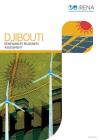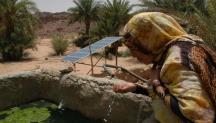

Renewables Readiness Assessment: Djibouti
Newsletter
Djibouti faces critical challenges with power generation and distribution. Heavy reliance on fossil-fuel imports keeps the country exposed to price volatility, constraining economic development plans. But significant geothermal, wind and solar energy resources could be developed to extend reliable electricity supply throughout the country, meeting the twin concerns of energy access and energy security.
A Renewables Readiness Assessment (RRA) identifies the actions needed to overcome a country’s barriers to renewable energy deployment, with the International Renewable Energy Agency (IRENA) providing technical support and expertise to facilitate consultations among different national stakeholders. While the process helps to shape appropriate policy and regulatory choices, each country determines which renewable energy sources and technologies are relevant and consistent with national priorities.
Djibouti’s indigenous renewable energy resources can help to meet rising power needs as Djibouti pursues its ambitious Vision 2035 economic development programme. Renewable energy development would also help to address high youth unemployment, creating more jobs per megawatt than conventional installation in the power sector.
As part of IRENA’s Africa Clean Energy Corridor initiative, Djibouti can benefit from the flexibility offered by increased cross-border electricity trade. The country can also position itself as a trans-continental transmission hub between power pools in Africa and the Arabian Peninsula, thereby bolstering its own energy security as well as supporting wider power-sector decarbonisation.




